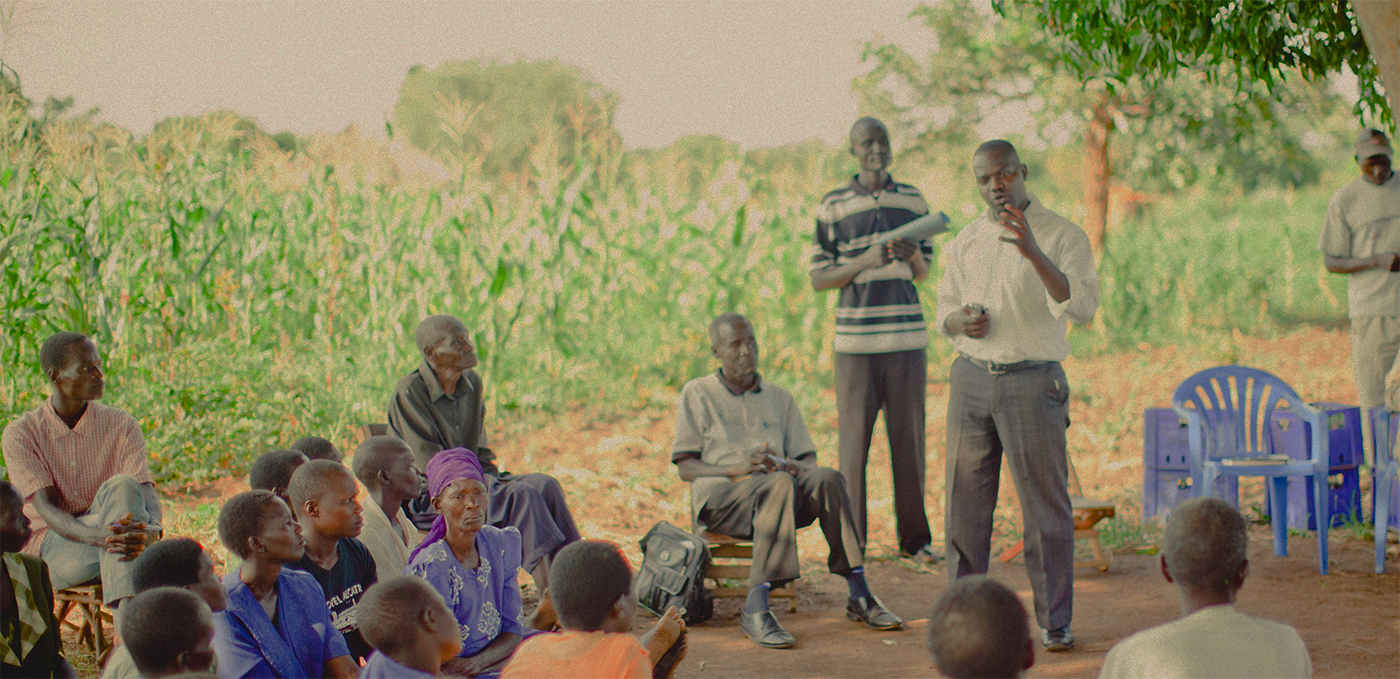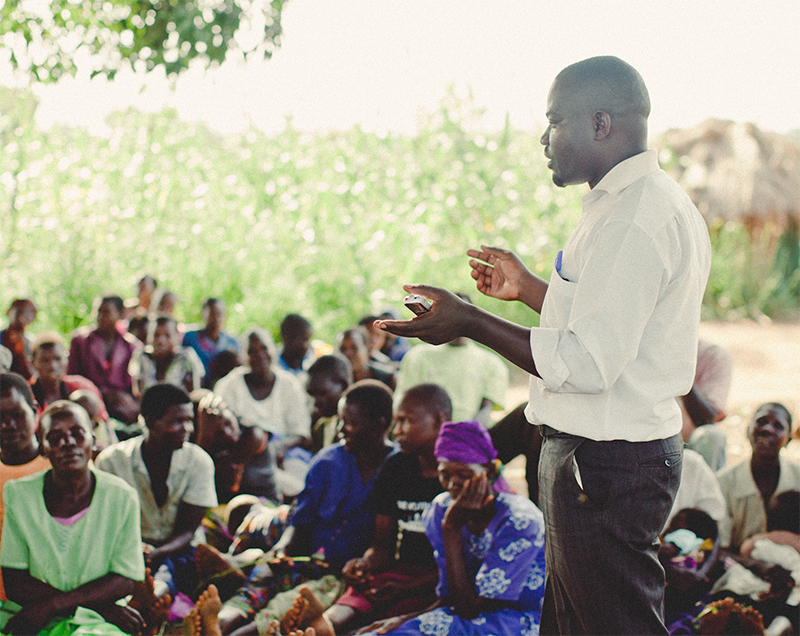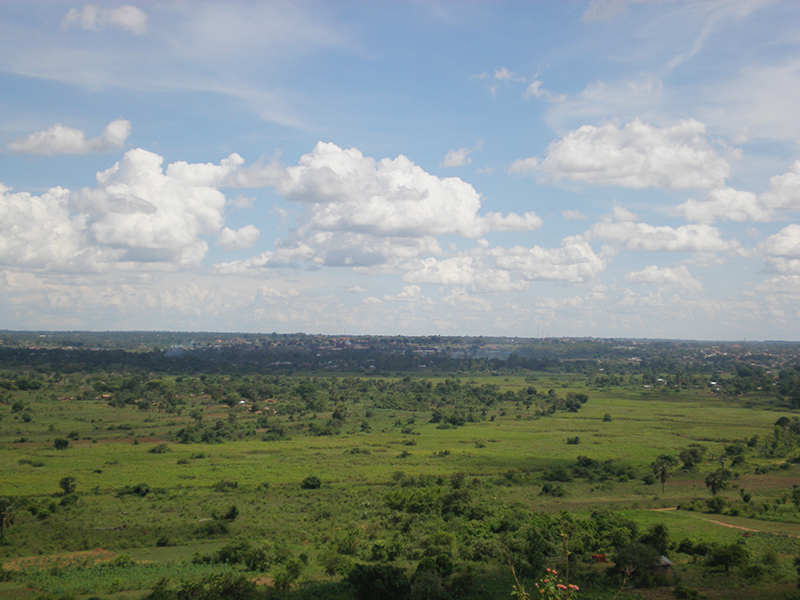
By Jaron Vogelsang, Program Manager, Community Land Protection Program
On my last trip to visit Namati’s community land protection partner Land and Equity Movement of Uganda (LEMU), I had a long conversation with Robert Ojok, one of LEMU’s amazing grassroots legal advocates. Robert and his colleagues at LEMU work tirelessly every single day to support communities in Northern Uganda to protect their lands and natural resources. This is his story, as told by him.

Robert Ojok facilitates a community meeting about local rules for land governance
I was born in Northern Uganda and spent my whole childhood in the village. My village had a very big piece of community land where people would graze their animals. We used to enjoy the land a lot. Before the early 1990s, when we still had the grazing lands, we used to play on the land with other kids and our parents used the land to get a lot of food and other resources.
But then in the late 1980s and early 1990s, cattle raiders attacked our land. It was a scary time – we even had to leave our homes and sleep in the bush.
Because of the insecurity, many people left the village and moved to towns where there was better security. But I stayed with my family in the village so we could take care of our cattle.
Our wealth was based on the number of cattle that someone had. So my family was fairly wealthy. We had all the milk we needed and we could have meat whenever we wanted. But then the cattle raiders stole everything that we had. My grandfather had 143 heads of cattle and they were all taken. We went from being fairly wealthy to having almost nothing. This happened to everyone in our village. Almost everyone became poor.
Then, after the cattle raids, we had another terrible thing happen. The Lord’s Resistance Army (LRA) insurgency started. So the little that people had – plots of land and shops – was all looted. People became internally displaced and started living in camps. People stopped using the community lands. It became vacant and overgrown. People rarely used the land because they were afraid of being attacked.
Then, after the insurgency, leaders in the village decided to give all of the community land away. So by the mid-1990s, we had no more community land.
This had a hugely negative impact on our community. When I grew up, I knew so many traditional games and practices. But now my son does not know these things. We have begun to lose our culture since there is no community land. I am also sad because he does not know about the wild resources that can be found on community lands. When I was in school, we did not need to bring lunch. We all went to the community land and gathered fruit to eat. This does not happen anymore.
Each June is considered the famine season because it is between harvests – and we always had food because fruit and vegetables could be gathered from the community land. But because we don’t have it any more, people are in rough situations. They can even starve.
So this is why I work every day to support other communities to protect their community land and natural resources. I grew up benefitting from my village’s community land and I have experienced what happens when it is lost. I do this work to preserve our culture and our livelihoods.
The work that Namati and LEMU is doing is so important – the work that we do is not just about getting a title to land. It is about preserving a way of life that is at risk of dying off if we don’t do anything about it.

A view of the landscape around Lira, Uganda